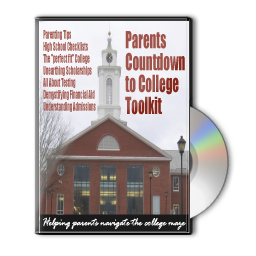 It is estimated that by the time a single child reaches the age of 18, his parents will have spent approximately $300,000, according to the U.S. Department of Agriculture (which releases annual reports on family spending). And that doesn’t include the cost of college. Of course, this report factors in housing, childcare, food, transportation, healthcare, and a number of other elements. But it comes out to about $13,000-14,000+ per year in expenses for a child in a median-income household (earning roughly $60,000-100,000 annually in taxable income). Unfortunately, your costs don’t end when your kids head off to college. In fact, they could increase significantly. You’ll still have to pay for your own home, car, food, and more, but you’ll also be on the hook for additional living expenses for your kids since they are no longer at home, not to mention tuition, books, fees, and other costs associated with college – unless of course you decide not to pay.
It is estimated that by the time a single child reaches the age of 18, his parents will have spent approximately $300,000, according to the U.S. Department of Agriculture (which releases annual reports on family spending). And that doesn’t include the cost of college. Of course, this report factors in housing, childcare, food, transportation, healthcare, and a number of other elements. But it comes out to about $13,000-14,000+ per year in expenses for a child in a median-income household (earning roughly $60,000-100,000 annually in taxable income). Unfortunately, your costs don’t end when your kids head off to college. In fact, they could increase significantly. You’ll still have to pay for your own home, car, food, and more, but you’ll also be on the hook for additional living expenses for your kids since they are no longer at home, not to mention tuition, books, fees, and other costs associated with college – unless of course you decide not to pay.
In truth, you have no onus to pay for your kids’ college education. However, most parents feel that it is their duty to ensure that their children attend college so they can start a career and realize their full potential on a professional level rather than toiling away at the dead-end jobs that high-school grads are often relegated to. In short, many parents want to set their kids up for the best chances in life, and that often includes the advanced education and expanded job prospects that college can provide. But you might not have the money to pay for it all, especially if you have a limited income and a large family, and the truth is that you don’t have to. The only question is how much you should pay.
This figure can be difficult to determine. The government has some guidelines in place, which is why you’re required to submit financial information via the FAFSA(based on previous year’s tax returns) when your kids apply for federal financial aid. They expect parents to take responsibility for at least a portion of the expenses associated with sending their kids to college. However, you can always provide more or less, depending on the needs of your children and your own financial situation. A good rule of thumb, in general, is to offer what you can afford while still keeping your own budget in order. There are a couple of good reasons to do this.
For one thing, it’s important to teach your kids to live within their means, and you can set a good example by doing so yourself. This could mean that your kids end up attending a less expensive institution or living at home so that they can save on living expenses and put that money towards higher tuition costs at their school of choice. Or they might be forced to work a part-time job to pay a portion of their own expenses so that they can attend their dream school. Either way, you avoid financial ruin and your kids learn some very adult lessons. Whether you are able to send them overseas to attend Oxford or they stay home and attend colleges like the University of Cincinnati, the most important thing is that you be honest about what you are willing and able to offer in terms of financial support so that your kids can make an informed decision about their future.










